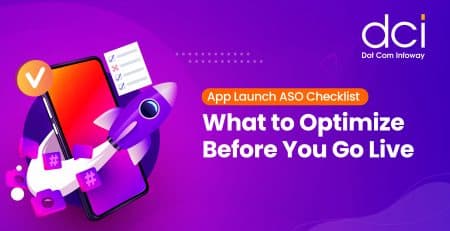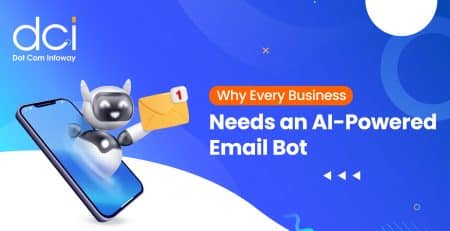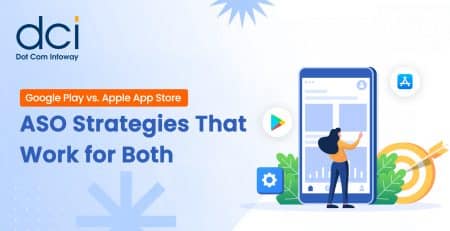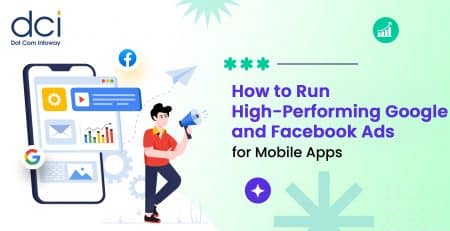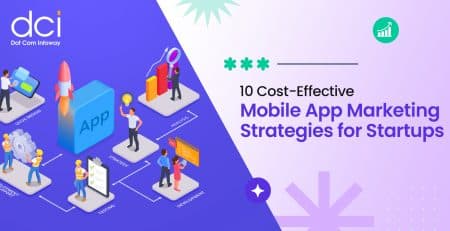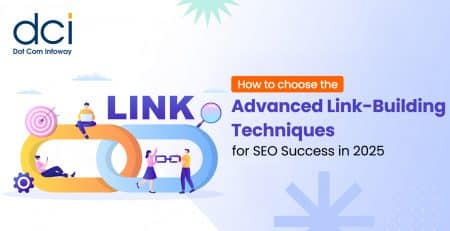Dissecting Education App Development: Insights About the Process, Benefits, and Cost
Developers who invest time and effort in educational app development and who are dedicated to creating high-quality education apps undoubtedly deserve all the praise they can get. It is, without question, a remarkably beneficent pursuit that contributes directly to allow society to make greater strides. Indeed, it’s not an overstatement to say that its domino effect can lead to vast improvements in a field as vital as education and could undoubtedly even serve as a catalyst to usher in a new renaissance.
Furthermore, it is also undoubtedly a lucrative endeavor, especially if your app manages to remedy major drawbacks and brings plenty of advantages to the entire institution. Should you decide to embark on this worthwhile app development project or simply want to learn about education app development and also eCommerce app development, do feel free to use the guide we’ve prepared below.

Classifications of Education Apps
Education apps can primarily be categorized based on their users or on a specific purpose related to formal instruction. For the former, you will need to look at apps that deliver either student- or teacher-centric features. And, normally, these are functionalities that lessen their burden.
These could be apps that allow teachers to manage their classes better when it comes to grades, attendance, homework, etc. For students, these could be platforms that help them prepare for an exam, attend digital courses, or even actively acquire new knowledge on a specific educational field.
As for purpose-based education app development, expect them to be more focused on delivering a solution to a specific education-related problem. Organizations as a whole, for example, can rely on learning management apps to easily handle their respective campus activities. Apps that fulfill a more generalized learning function and cater to a specific demographic (e.g. education apps for kids) also fall under this category.
Categories of Edtech Apps
Education apps can be further subdivided into the manner in which they fulfill their primary functions. Since most edtech apps deal with instruction, they can be grouped into the following categories.
-
Online Learning
Online Learning Apps that deliver pre-recorded videos often provide teachers and students a lot of unique benefits. For students, they can choose to watch the lectures anytime they like and can even take breaks if it happens that the recording is too long. Conversely, pre-recorded videos save teachers a lot of time and effort to cover multiple topics and share them with the equally numerous classes they’re handling.
-
Online Learning (Live Classes)
Live classes like LMS Development facilitate and simulate the student-teacher connection only possible in face-to-face learning so they will always be a preferred and popular choice. Opportunities for better collaboration and interaction open up and teachers will immediately be able to respond to students’ queries.
-
Classroom Digitalization
This is a more all-encompassing edtech app as it practically digitizes the entire classroom. Students need only to use a laptop or tablet to take part in the virtual classroom where educational resources are readily accessible. Additionally, a more genuine classroom environment is usually recreated by online classes app to not only help teachers and students warm up to the digital setup and even improve the quality of learning.
Advantages of Having an Education App
Here are some benefits of education apps below.
1. Today’s Generation of Children Can Easily Adapt to Interacting Through Apps
Education apps can capitalize on children’s familiarity with apps by making their content more interactive. It will be easier for them to be in their element this way and make the most out of what a digital classroom offers.
2. Remote Learning
Since lessons can be recorded and replayed, students have all the freedom in the world to take control of their studies. Given the profound effects of the pandemic, remote learning also virtually ensures that learning can continue uninterrupted without compromising safety.
3. Fills Gaps in Any Educational System
There’s no question that no educational system is perfect. At best, most are beset with challenges that pull down learning quality and student and teacher satisfaction. Schools’ revenues also take a dive as a result. With the help of education app development that fulfill various purposes and cater to both student and teacher, these long-standing gaps can be narrowed.
4. Huge Scalability and Sustainability Often Give Way to High Profitability
Almost all kinds of mobile learning apps can be built to inherently give way to sustainability and scalability. With apps, schools can forgo pens, papers, and other tools; tools that have figured in classrooms for a long time and only contribute to additional expenses.
Most digitalized classrooms can also be created in such a way that it smoothly accommodates scalability and further improvements. All of these desirable characteristics point to better ways for educational app owners to easily market their creations.
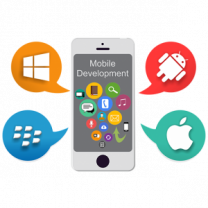
Are You Looking for a Mobile App Developing Expertise?
Dot Com Infoway is a leading mobile app development company, which creates scalable and interactive mobile applications that can amplify the level of user experience to meet any specific business requirements.
How to Develop an Education App?
Features and Functionalities
Features and functionalities are usually determined by the type of education app you will be developing. We are, of course, only referring to the MVP features here. If you’ll be developing for students, you’ll have to be mindful of features. This is but a general overview of the features of a typical education app including learning app development based on its target audience.
- Signup – Students will need to be able to login to the app using either their email or phone then input their password. For most registration features, Amazon SES is usually utilized by developers.
- User Profile – Students need to provide vital personal information like name, age, subjects they’re taking, etc.
- Search – Giving the ability to perform an advanced search that will cover courses offered, schedules, or even educational resources will always be extremely helpful.
- Course – Allows students to access courses they’re interested to take. You need to make space for descriptions of each course to relay the necessary information.
- Payments – Payment gateways can be added for smooth transactions pertaining to enrollment in any course offered in-app.
- Push Notifications – No better option exists for apps to share relevant information about the goings-on in the campus or classroom than through push notifications.
For teachers, most of the said features also need to be integrated, except we’ll obviously have to take out Payments and Search and replace them with:
- Test – Apps should be able to let teachers upload or create their own tests within the app. As much as possible, it should accommodate most subjects.
- Student Management – Attendance, keeping account of every student’s performance, and grading are but some of the aspects that fall under this feature.
Technology Stack
Native education app development is typically relies on either Kotlin (for Android) or Swift (for iOS) as main programming languages with OkHttp 3 and Alamofire as networking tools respectively. For cross-platform, Flutter remains a recommended choice.
Of course, you also can’t forget about the facets of back-end development, namely database, framework, API, and the programming language. Many solid options like Node.js, MySQL, and Swagger are readily available. For specific features like payment gateways, you can use Braintree, while search and push notification solutions can be provided by Elastic Search and FCM.
These are just examples, though, and there’s practically a multitude of variations to tech stacks that you can use. Find the one that’s most comfortable and convenient for your purposes.
Choosing the Right App Monetization Model for Your App
There are plenty of ways for you to earn from your finished app. As it stands, many can attest to the efficacy of adding advertisements, adopting a freemium approach, or offering your creation as a paid app.
Ads are the way to go if you will be offering your app at no cost. With Freemium, you’ll need to think of exclusive features that you can offer as premium content. Also, students and teachers will want to be able to enjoy seamless, smooth access to content so you may offer them an ad-free interface or even offline capability.
With paid apps, you can either offer a single version that costs for a fixed price or develop a paid version of the app that will have more helpful features of an eye-catching interface.
How Does It Cost to Develop an Education App?
This is admittedly a highly variable topic and we can only give an approximation. You will have to consider the region you will largely be working in, after all, as well as the average rates of developers in them. The time needed to complete the app would have to be tallied as well.
That said, with all the aspects said above considered, expect the average cost to develop an app in either Android or iOS platform especially education app development cost will be around $30,000 – $130,000.
Conclusion
As you can see, creating education apps can be both fulfilling and profitable for any app developer or school owner. Should you decide to go ahead with developing your own education app, always strive to stand out by introducing your own ideas and, more importantly, solving a lingering education problem. We hope that the information shared here would help you decide on the most practical and smartest route to take.
Related Articles:
- How Much Does It Cost to Develop a Photo Sharing App like Instagram?
- How Much Does It Cost to Develop an App like Zomato, Swiggy, Uber Eats?
- How Much Does It Cost to Develop a Ride-Sharing App?
- Must-Have Features of Sports Betting App Development & Cost Estimation
- The Cost to Develop & Takeaways from Taxi Booking Apps like Uber, Ola & Lyft
- How Much Does an App like Airbnb Cost?
- How Much Does it Cost to Develop a Marketplace App Like Amazon/Etsy?
- Cost Estimation & Must Have Features of Online Ticket Booking App Development
- How Much Does It Cost to Develop a Social Media App?
- How Much Does It Cost to Design, Develop and Launch a Mobile App?
- A Complete Guide on Dating App Development with Costs Overview
- Game App Development Cost Estimation For All Mobile Game Genres



